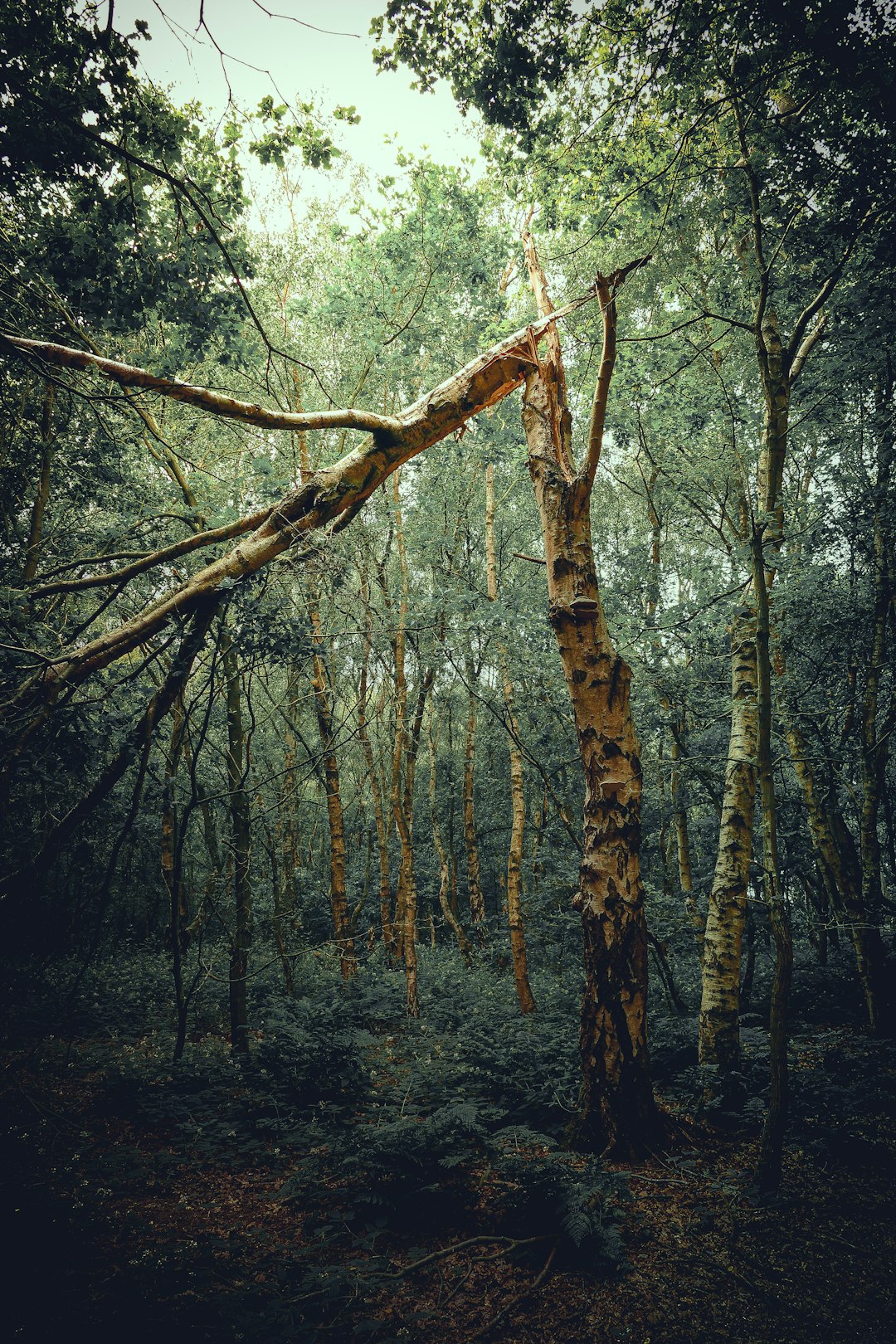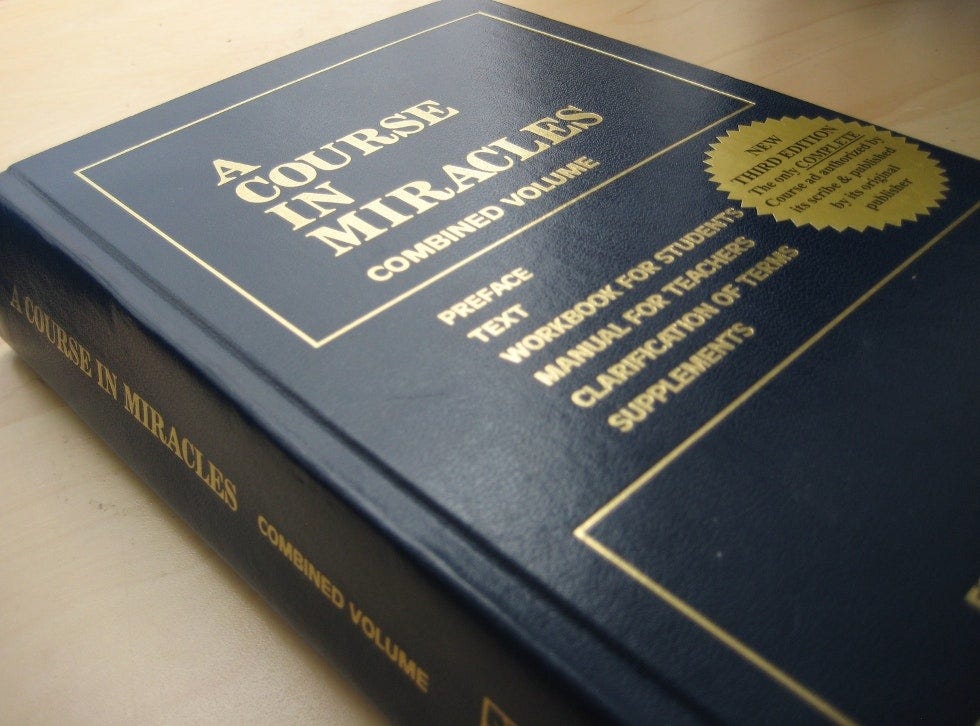I didn't really like the house. Not that it mattered at that point.
It was 1996, and my then-partner, Amanda, and I had to find some place to live, quick. We had been renting an incredibly unique place – a old Atlanta trolley that had been transformed into a beautiful house. The house was set up in a way that created an illusion of the trolley coming into the station. The door to the bathroom was the ticket window and its walls didn't reach the ceiling. Our joke was, "In the trolley, everyone can hear you pee."
The woman who owned the house had planned to rent it out for the two weeks that the Olympics were in town. We had a choice: either find someplace to live for two weeks (in a city where every hotel room was already booked) or find another place to live. We decided to go house shopping.
The house we settled on was the ugly duckling of the neighborhood. Outdated kitchen, a half-finished attic/master suite space with a small bathroom and nasty carpet, an unruly and treacherously sloped back and front yard, a basement that regularly flooded with rainwater brought in on the roots of an oak tree peeking through the foundation, floors in need of … something. The home's only saving grace, in my opinion, was the sunroom with its floor-to-ceiling glass walls that looked out onto a wooded lot where goats roamed freely near the heart of downtown Atlanta. (Did I mention this was 1996?)
We were happy there, for a while, anyway, until the pressures already present in the relationship became unbearable. Amanda's health began to decline as she was diagnosed with transverse myelitis, an affliction that was a precursor to her eventual diagnosis of multiple sclerosis. That stress, along with others, proved too much for our relationship, which finally broke a couple of years into our residency in this house.
We had big dreams for that house. We renovated what we could in the master attic suite, ripping out the carpet, painting the walls, arranging it into livable space. We were limited, though, by both skill and money. As her health declined, taking care of the unruly and overrun yard became a challenge for both of us. Neighbors complained to the city about growing code violations instead of, y'know, offering help.
Eventually, I moved out, first to an apartment, then to a house of my own near Grant Park, about two miles from what was now, Amanda's house. In the intervening years, as her health declined, she sold the house. She eventually ended up in a nursing home, needing round-the-clock care. She died on March 5 of this year, succumbing to an insidious disease that robbed her of nearly everything she loved.
This past weekend, I attended her memorial service at a church not a mile from our old house. The room was packed mostly with people who had only known Amanda while she was ill. I told them about the vibrant and healthy Amanda who I had known, who had big plans for a tired old house – plans that had been thwarted by poverty of time, money, energy, and health.
After the service, I had a strong urge to drive by the house. "It's totally different," one of Amanda's closest friends told me. "Maybe I'll knock on the door and ask to look around," I joked. I had no intention of being that kind of weirdo.
When I drove up to the house, though, there was a woman with a dog in the backyard. I decided to talk to her. I told her I had bought the house in 1996 and I could already tell, just from the outside, that it was, as I was told, "totally different." The woman was kind and gracious and after a few minutes of conversation about the history of the house … she invited me inside.
The house was gorgeous. The person that Amanda had sold it to had renovated the kitchen – and the current owners renovated it again, along with the rest of the house after a tree from the back yard fell on it in late 2019, nearly splitting the house in half.
The husband described the difficulty of orchestrating a house renovation in the middle of a pandemic, but despite the obstacles, the house had been remade and transformed from the destruction into a magnificent home. The remodel was almost exactly how Amanda and I had envisioned the house. It was more open, lighter and, even though the floor-to-ceiling glass in the sunroom had been replaced with an array of regular windows instead (and the view was now of another batch of new homes, sans woods and goats) the house itself seemed happier.
It was then that I realized that house stood as a metaphor for my relationship with Amanda. It was only when our lives were split in two by our separation that we both were able to flourish and become who we were truly meant to be. I moved on to South Carolina, starting a spiritual community and growing to love the new place where I had been planted.
She moved on to meet new friends who were there for her in ways that I could not be as her illness grew worse. She experienced new joys, new relationships, and new ways not just to cope with her illness, but to finally fully accept it and find a way to bless, and be blessed, by it. At her memorial, person after person said that Amanda didn't talk much about her affliction, or even complain about it. She was more interested in building relationships with her friends – those who became her family over the years.
This is how life works for all of us. Sometimes it takes a catastrophe – a metaphorical falling tree to cut our lives in half in some way – to move us out of our comfort zone and into the wilderness of blessing. When we become too complacent, new blessings have no way to get to us. Life, though, has a way of making a way out of no way for those new blessings to arrive. We may call the situation that befalls us "bad" or "unlucky," but I believe, as the Apostle Paul assures us that "all things work for the good."
A Course in Miracles tells us that we have no idea what is in our best interest, because we have such a limited picture of what our lives could be. We think we know what we want, but often our dreams are far too small. The turbulent time of breakup that Amanda and I went through wasn't fun. We were both torn apart by it – but it was exactly that broken mess that provided the fertile soil for new blessings and new beauty to take root and bloom.
The house I never liked is a reminder that sometimes, to make things new again, the old must be destroyed. It's a painful experience for all of us when our lives appear to be split in two by forces that we don't understand. Instead of despair, though, I believe these are the moments Spirit invites us to trust completely in the Holy's plan for our lives instead of our own. This is the root of surrender. Not a giving up in despair, but a relinquishing in trust – knowing that we have no idea how things will work out, but are assured that blessings will abound.
I wasn't able to see the full picture until this past weekend of how, as the Indigo Girls song I sang at Amanda's memorial puts it, "what was once your pain will be your home." That house was a place of pain for both me and Amanda, but now it is a beautiful blessing to a new couple – a home that provides both beauty and love. I think Amanda would have loved it. Perhaps she was the one who created that strong pull for me drive by the house so she could show me that everything ultimately worked out for the good – even amid all the destruction and pain.
What about you? What parts of your life seem irretrievably broken right now? What, in your life, has been split in half? Can you recall a similar time, when the pain and destruction of life seemed too great to bear? What were the blessings that came out of that time and place? What blessings seem to be emerging for you now, even as you survey the rubble of your own life or dreams?
I invite you to meditate and pray on these questions and surrender your own ideas of how things "should" work out. Trust that the Universe has your back, and is, even in this moment, working it all out for the good in ways you never could imagine.
Are you enjoy The Motley Mystic? If so, why not share it with your friends? It’s free to subscribe!
Take 20 with Candace
This week’s Take 20 is from Jubilee! Circle's June 5, 2022, celebration: “The Barrier of Blessings.” We like to think our blessings come from God, and however true that might be, our blessings are also delivered to us through the hands of others.
If you wish to support my work, please consider making a donation to Jubilee! Circle.
Want to learn more about A Course in Miracles?
Jubilee! Circle hosts an informal discussion group about A Course in Miracles every Wednesday night at 7:30 p.m. Eastern Time. If you’re in the Columbia, SC area, you can join us in-person at 6729 Two Notch Road, Ste. 70 in Columbia. If you’re anywhere else in the world, join us by Zoom using the link below. Whether you’re new to ACIM, or have been studying it for years, this is a low-pressure, friendly environment to learn more and grow together! Join us:
Zoom link: https://us02web.zoom.us/j/86088245457?pwd=bWd6QzhscGlUYnFnYUU1dy9uTUVMZz09
You can now read The Motley Mystic and all your favorite Substack authors through their new app! Download it today.
About the Motley Mystic:
The Motley Mystic is an online community for people who have realized that the truth speaks with many voices. There is no one religion, philosophy, institution or dogma that captures the whole Truth and nothing but the Truth. No one needs to swear allegiance to one line of thought or belief to discern Truth, because Love is the only thing that’s real. That’s what we explore at the Motley Mystic - all the tools and strategies we need to remove our barriers to Love and live fully as our true, Divine Self.
Candace Chellew is the founder of Motley Mystic as well Jubilee! Circle, an interfaith spiritual community in Columbia, S.C. She is also the author of Bulletproof Faith: A Spiritual Survival Guide for Gay and Lesbian Christians published in 2008 by Jossey-Bass and the founder and senior editor emeritus of Whosoever: An Online Magazine for LGBTQ People of Faith. She is also a musician and avid animal lover.





